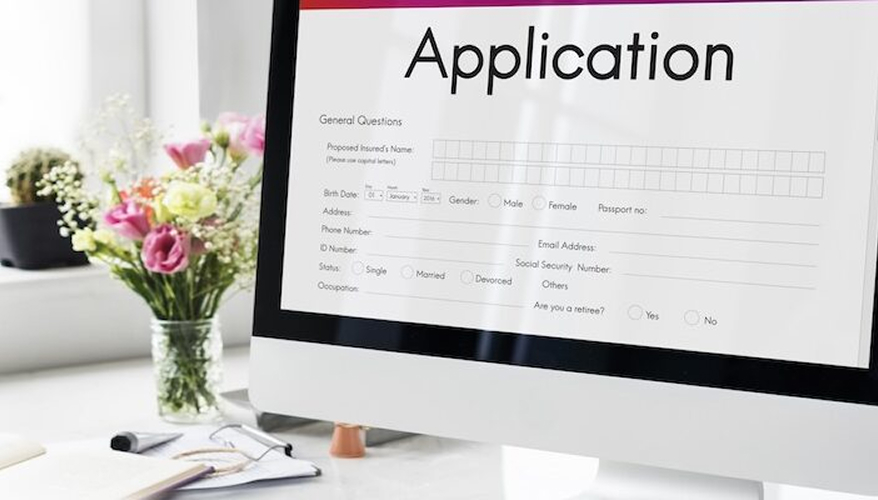Singapore has consistently been lauded for its robust economy and high standards of living. A key factor contributing to this success is the government’s commitment to ensuring that even low-wage workers have access to a decent standard of living.
One of the initiatives designed to achieve this goal is the Progressive Wage Credit Scheme (PWCS). In this blog post, we’ll delve into what the PWCS is, how it works, and its significance in Singapore’s social and economic landscape.
What Is the Progressive Wage Credit Scheme (PWCS)?
The Progressive Wage Credit Scheme (PWCS) is a government initiative in Singapore aimed at raising the wages of low-wage workers while also encouraging employers to invest in productivity improvements.
The scheme was introduced in Budget 2022 as part of the Singapore government’s efforts to address income inequality and improve the livelihoods of low-income workers. The PWCS complements other wage enhancement measures such as the Workfare Income Supplement (WIS) and the Minimum Wage Plus (MWP).
The PWCS is a transitional scheme that will run from 2022 to 2026 and has two main objectives:
- To encourage businesses to adopt progressive wage practices and ensure that workers share in the productivity gains of the company.
- To provide transitional support for businesses to adjust to the upcoming mandatory wage increases for lower-wage workers.
How Does the Progressive Wage Credit Scheme (PWCS) Work?
The Progressive Wage Credit Scheme (PWCS) in Singapore is a government initiative aimed at increasing the wages of low-wage workers while encouraging employers to invest in productivity improvements. Here’s a more detailed look at how the PWCS works:
The PWCS co-funds wage increases for two years if the wage increase is sustained. The co-funding rate is based on the employee’s gross monthly wage and the year of the wage increase. The following table shows the co-funding rates for the PWCS:
| Year of wage increase | Employee’s gross monthly wage | Co-funding rate |
|---|---|---|
| 2022 | Up to $2,500 | 75% |
| 2022 | Above $2,500 and up to $3,000 | 50% |
| 2023 | Up to $2,500 | 50% |
| 2023 | Above $2,500 and up to $3,000 | 30% |
| 2024 | Up to $2,500 | 30% |
| 2025 | Up to $2,500 | 15% |
Eligibility Criteria for Employers:
To be eligible for the Progressive Wage Credit Scheme, businesses must meet the following criteria:
- Be registered and operating in Singapore.
- Have at least one employee who is a Singapore citizen or permanent resident.
- Pay their employees at least the local qualifying salary (LQS).
The LQS is the minimum monthly salary that employers must pay to Singapore citizens and permanent residents who are working full-time in selected sectors. The LQS is currently set at $2,500 per month.
To apply for the PWCS, businesses must submit an online application to the Inland Revenue Authority of Singapore (IRAS). The application process is relatively straightforward, and businesses will be notified of their application outcome within a few weeks.
Once a business has been approved for the PWCS, it will receive a payout from IRAS for each qualifying wage increase that it gives to its lower-wage workers. The payout will be calculated based on the co-funding rate and the amount of the wage increase.
The PWCS is a valuable government initiative that helps to uplift low-wage workers and support businesses in their efforts to raise wages. Businesses that are eligible for the PWCS should take advantage of the scheme to raise the wages of their lower-wage workers and improve their financial security.
Here are some examples of how the Progressive Wage Credit Scheme works:
- A business gives a wage increase of $100 to a lower-wage worker with a gross monthly wage of $2,500. The business will receive a payout of $75 from IRAS.
- A business gives a wage increase of $50 to a lower-wage worker with a gross monthly wage of $3,000. The business will receive a payout of $25 from IRAS.
- A business gives a wage increase of $200 to a lower-wage worker with a gross monthly wage of $2,500. The business will receive a payout of $150 from IRAS.
How to Maximise the Benefits of the Progressive Wage Credit Scheme (PWCS)
By following the below tips, businesses can maximize the benefits of the PWCS and help to uplift their lower-wage workers.
- Adopting progressive wage practices – This means giving regular wage increases to lower-wage workers, even if they are not required to do so under the PWM or LQS.
- Raising the wages of their lower-wage workers voluntarily – This can be done by giving one-off wage increases or by implementing a wage progression plan.
- Sustaining wage increases over time – This means giving regular wage increases to lower-wage workers, even if their productivity does not increase.
Significance of the Progressive Wage Credit Scheme (PWCS)
The Progressive Wage Credit Scheme (PWCS) in Singapore holds significant importance within the country’s economic and social framework. Its impact can be observed through various lenses, highlighting its significance:
Addressing Income Inequality:
One of the most significant contributions of the PWCS is its role in reducing income inequality in Singapore. While Singapore boasts numerous advantages, it also has a high cost of living. Targeting low-wage workers and providing financial support to their employers helps narrow the income gap, ensuring that even those at the lower end of the wage spectrum can enjoy a better standard of living. This is crucial for social harmony and stability.
Improving Livelihoods:
The PWCS directly improves the livelihoods of low-wage workers by increasing their take-home pay. This extra income can be used for essential needs such as housing, healthcare, education, and savings. It reduces the financial stress faced by low-income households and enhances their overall well-being.
Encouraging Skill Development:
To qualify for PWCS, employers are encouraged to invest in their workers’ skills and capabilities. This leads to an upskilling of the workforce, which not only benefits the workers themselves but also makes the workforce more competitive and adaptable, ultimately contributing to economic growth.
Boosting Consumer Spending:
As low-wage workers receive wage increments through PWCS, they have more disposable income. This can lead to increased consumer spending, which stimulates economic activity and supports local businesses. It can create a positive economic multiplier effect throughout the country.
Enhancing Job Quality:
PWCS incentivises employers to not only increase wages but also improve working conditions and career progression opportunities for their low-wage workers. This contributes to the overall quality of jobs available in the market, making them more attractive and sustainable.
Complementing Other Social Assistance Programs:
The Progressive Wage Credit Scheme complements other social assistance programs in Singapore, such as the Workfare Income Supplement (WIS). Together, these programs provide a comprehensive safety net for low-income individuals and families, ensuring they have access to financial support, healthcare, and education.
Promoting Fair Employment Practices:
Employers who wish to benefit from PWCS must demonstrate commitment to fair employment practices. This includes treating workers ethically and providing opportunities for advancement. Thus, the scheme promotes responsible business behaviour.
Social Cohesion:
A society with reduced income inequality is generally more cohesive and harmonious. The PWCS helps build trust between citizens and the government, as it shows that the government is committed to addressing the needs of its most vulnerable citizens, fostering a sense of social cohesion.
Economic Competitiveness:
By incentivising productivity improvements, the PWCS contributes to the long-term economic competitiveness of Singapore. A skilled and well-paid workforce is better equipped to adapt to technological changes and contribute to innovation and economic growth.
Government’s Commitment to Welfare:
The existence of the PWCS underscores the government’s commitment to the welfare of its citizens, irrespective of their income levels. It reflects a social and economic policy that prioritises equity and inclusivity.
Conclusion
The Singapore Progressive Wage Credit Scheme (PWCS) is a forward-thinking policy designed to address income inequality and improve the livelihoods of low-wage workers. By incentivising employers to provide wage increments and invest in productivity enhancements, the PWCS not only benefits workers but also contributes to the overall economic development and social cohesion of Singapore. It stands as a testament to the government’s commitment to ensuring a decent standard of living for all its citizens, regardless of their income level.
While PWCS offers numerous benefits, it’s essential for employers to navigate its intricacies effectively. An immigration consultant can be a valuable partner in this journey, providing expert guidance to ensure that your business not only complies with PWCS but also maximises its positive impact on your workforce and bottom line.






